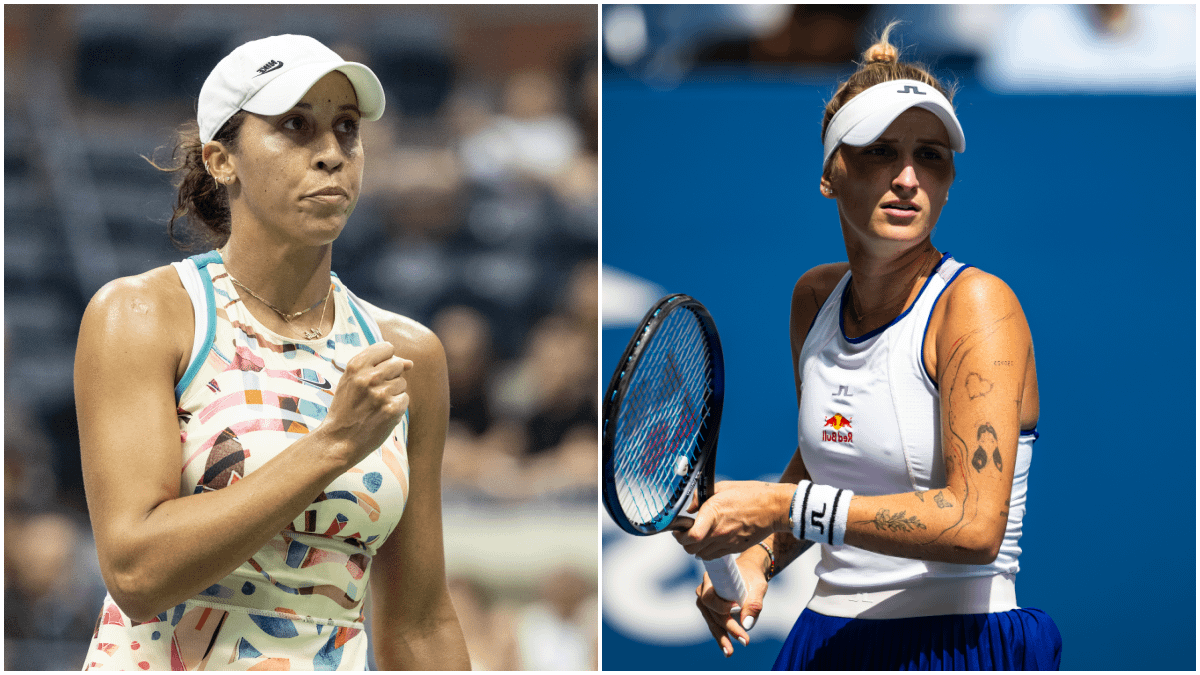Madison Keys and Marketa Vondrousova both overcame difficult matches to reach the third round of the French Open. In challenging circumstances, both players had to show resiliency and mental toughness to defeat their rivals.
The fifth-seeded Vondrousova faced the unpredictable American Katie Volynets in her match.
Due to rain delays, the match took place over two days. Volynets took an unexpected lead in the first set, winning 6-0.
At first, Vondrousova had trouble getting into a rhythm, but in the second set, she came out strong, took charge, and won 6-1. She maintained her momentum into the third set, winning 4-1, prior to Wednesday’s rainy play being called off.
Vondrousova kept up her impressive play when the match restarted on Thursday, winning another game quickly before play was again delayed due to rain.
Vondrousova persevered in her concentration and poise in the face of numerous disruptions, ultimately winning the final set 6-4 to end the tournament.
Her ability to bounce back from a bad start demonstrated her tenacity and tactical changes.
In contrast, Madison Keys defeated Mayar Sherif in straight sets, 6-0, 7-6 (9-7) to claim the win.
Keys easily won the opening set after dominating it and breaking Sherif’s serve three times. The second set, meanwhile, turned out to be far more difficult.
Got there in the end 😅
— wta (@WTA) May 30, 2024
2019 finalist @VondrousovaM finds a way past Volynets, defeating the American 0-6, 6-1, 6-4 to keep moving in Paris#RolandGarros pic.twitter.com/6azjE1xtjp
Sherif launched a fierce counterattack, testing Keys’ endurance. Sherif was able to force a tiebreak by saving three match points in a fiercely contested second set.
Keys won the tiebreak 9–7 after demonstrating her mental toughness by preserving three set points on her own.
This triumph showed that Keys could remain composed under duress and carry out her strategy well even when the game became heated.
Vondrousova will face Chloe Paquet in the upcoming round. Vondrousova has a great record at Roland Garros, where she has tied the record at Indian Wells with 13 career victories.
Her accomplishments and familiarity with this place may provide her with the confidence she needs to move forward.
In the following round, Madison Keys will face either Emma Navarro or Sara Errani. As Keys moves farther in the competition, her strong performance and her ability to handle challenging circumstances will be critical.
Vondrousova and Keys both showed remarkable fortitude and skill in defeating their opponents and moving on to the French Open third round.
Vondrousova’s tactical intelligence and mental resilience are demonstrated by her ability to bounce back from a terrible first set and adjust her plan in the face of difficult weather.
In a same vein, Keys’ ability to stay composed during a tense second set and win the tiebreak shows that she is prepared to compete at the highest level.
Their performances will be extensively monitored as they advance in the competition, and their capacity to perform under pressure will be essential to their success.
This Article was written by Tushar, author @09sports.com
- NBA Community Mourns the Loss of Drew Gordon, Brother of Aaron Gordon
- Young Spelling Sensation Lucas Lee Sets New Milestone at National Spelling Bee Competition
- “Illegal screens they set for Luka” Timberwolves Coach Criticizes Mavericks’ Screens Ahead of Pivotal Game 5
- Tottenham’s Teen Sensation: The Rise of 16-Year-Old Prodigy Mikey Moore
- Kansas City Royals’ Offensive Explosion Ends Skid in 6-1 Win Over Minnesota Twins
